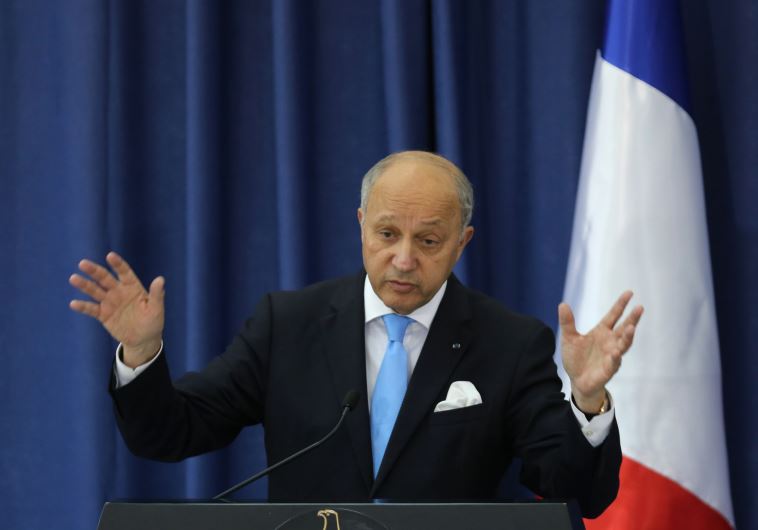Israel-Palestine: French recipe lacks ingredients
France has consistently defended Israel’s right to exist in security, while long advocating the creation of a Palestinian state.
 French Foreign Minister Laurent Fabius gestures during a press conference at the Mukataa compound, in the West Bank city of Ramallah, on June 21, 2015. (photo credit: ABBAS MOMANI / AFP)Updated: Read More
French Foreign Minister Laurent Fabius gestures during a press conference at the Mukataa compound, in the West Bank city of Ramallah, on June 21, 2015. (photo credit: ABBAS MOMANI / AFP)Updated: Read More


